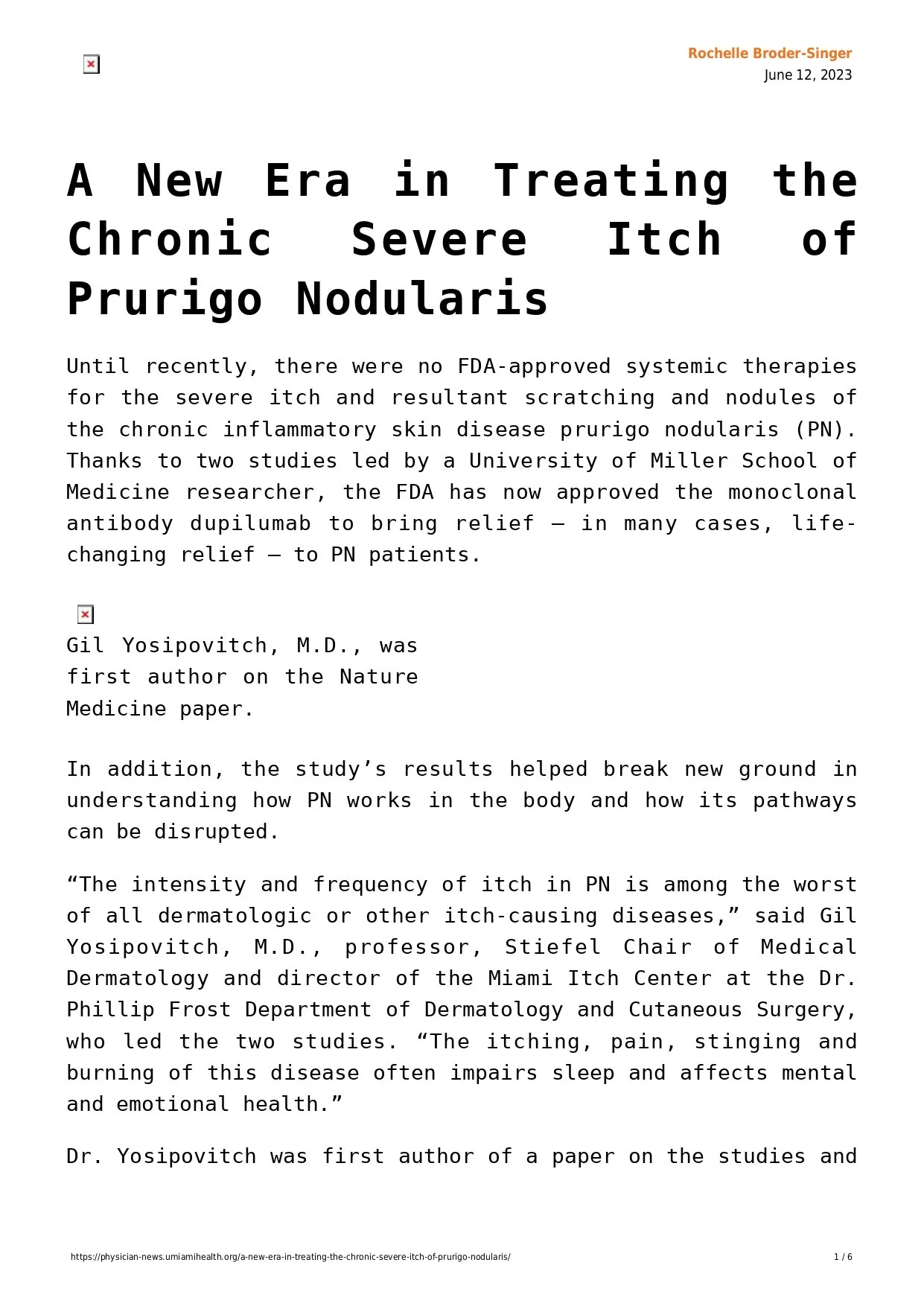A New Era in Treating the Chronic Severe Itch of Prurigo Nodularis
/An article for InventUM | University of Miami Miller School of Medicine
BY ROCHELLE BRODER-SINGER
A New Era in Treating the Chronic Severe Itch of Prurigo Nodularis
Until recently, there were no FDA-approved systemic therapies for the severe itch and resultant scratching and nodules of the chronic inflammatory skin disease prurigo nodularis (PN). Thanks to two studies led by a University of Miller School of Medicine researcher, the FDA has now approved the monoclonal antibody dupilumab to bring relief — in many cases, life-changing relief — to PN patients.
In addition, the study’s results helped break new ground in understanding how PN works in the body and how its pathways can be disrupted.
“The intensity and frequency of itch in PN is among the worst of all dermatologic or other itch-causing diseases,” said Gil Yosipovitch, M.D., professor, Stiefel Chair of Medical Dermatology and director of the Miami Itch Center at the Dr. Phillip Frost Department of Dermatology and Cutaneous Surgery, who led the two studies. “The itching, pain, stinging and burning of this disease often impairs sleep and affects mental and emotional health.”
Dr. Yosipovitch was first author of a paper on the studies and their results, which appeared in the May 2023 issue of the journal Nature Medicine.
In both studies, which were randomized, placebo-controlled phase 3 trials for the use of dupilumab to treat PN, many patients receiving the medication experienced clinically significant improvements in itchiness, skin lesions and quality of life. Far fewer of those receiving the placebo experienced such improvements.
The positive effects of dupilumab were similar for atopic and non-atopic patients, and did not appear to be affected by the use of topical corticosteroids/topical calcineurin inhibitors during the studies. In addition, fewer dupilumab-treated patients required rescue medication compared with those given placebo. The medication was well-tolerated, with no treated patients discontinuing treatment. Its safety profile was consistent with its known profile, and patients treated with it had fewer skin infections than those receiving placebo.
“This study demonstrated that dupilumab is effective and safe for prurigo nodularis and led the FDA to approve the first systemic drug for treating this condition,” said Dr. Yosipovitch. “This study also opened a new era for research into other drugs to bring relief to PN sufferers.”








